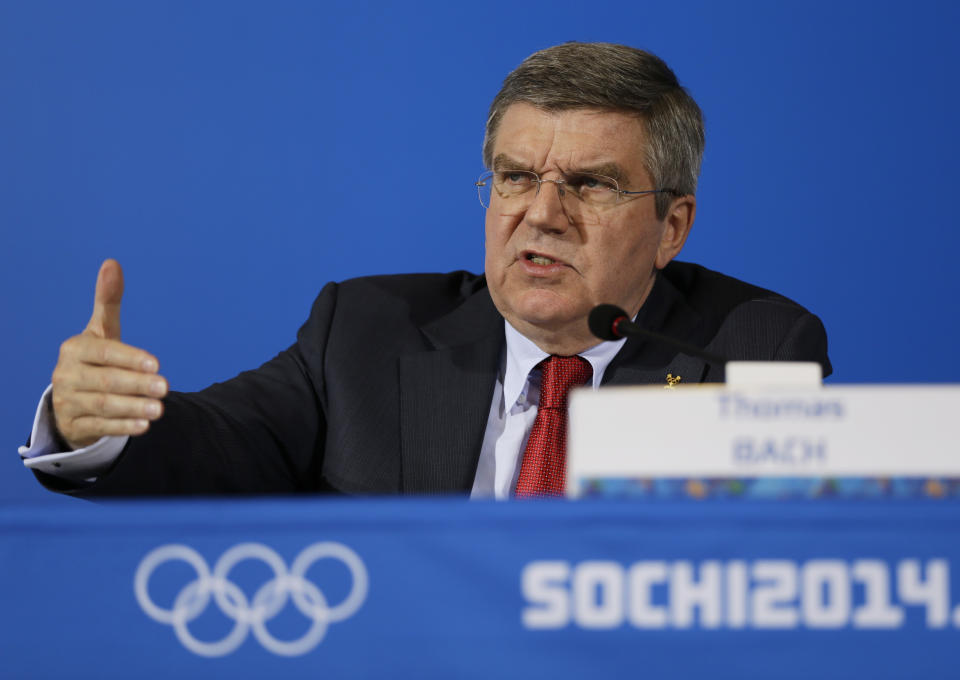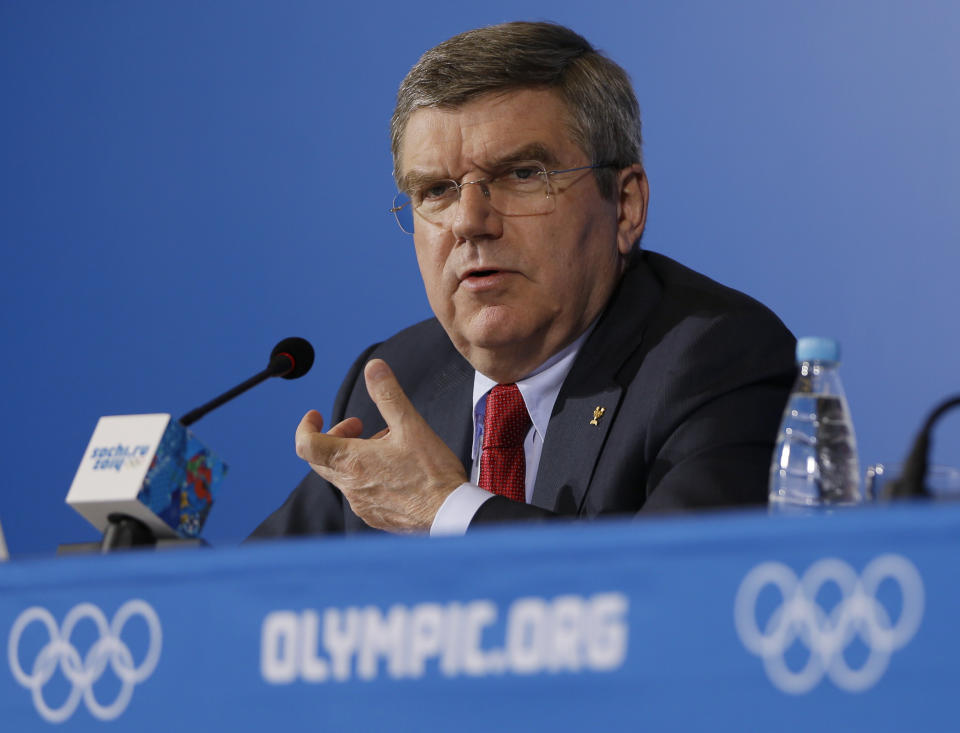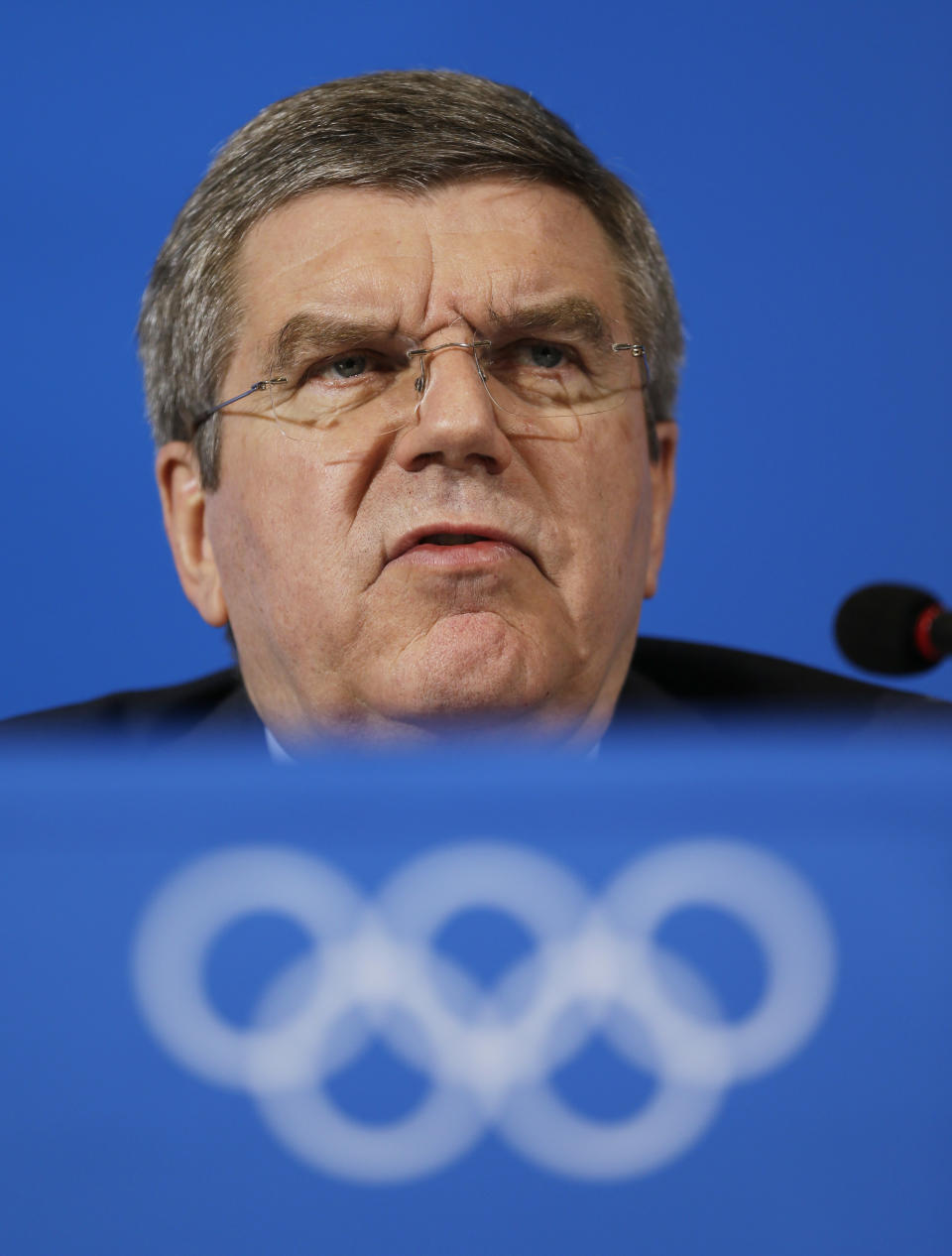Bach hails 'amazing' transformation of Sochi
SOCHI, Russia (AP) — IOC President Thomas Bach hailed the Sochi Olympics on Sunday for showcasing the "amazing" transformation of a fading resort town where he once feared being hit in the head by a falling roof.
In a news conference on the final day of the Olympics, Bach said Sochi had staged a Winter Games that proved the IOC made a sound decision seven years ago to award the event to the little-known city on the Black Sea coast.
Sochi built everything from scratch as part of Russian President Vladimir Putin's mission to turn the decaying region into a winter sports center and year-round tourist destination.
"It's amazing what has happened here," he said.
Sochi was awarded Russia's first Winter Games in 2007 after two previous unsuccessful bids. Bach was chairman of an International Olympic Committee evaluation panel that assessed Sochi's second failed attempt.
"I came here and said, 'Impossible,'" he said. "We were here and you saw (an) old, Stalinist-style sanatorium city where you entered the room and you were looking at the roof so you would not be hit by something falling down. It was terrible.
"And then seeing now ... it was really amazing. And now it will be important to secure the legacy of this games."
Bach said the games have generated a "really overwhelmingly positive" response from athletes, national Olympic committees, international sports federations, sponsors and broadcasters. He singled out the volunteers for showing "the best of Russian hospitality," delivered with a smile.
"You didn't only get a smile, you got the right information," he said.
Bach was asked whether the Olympics had been tainted by the common description of these as "Putin's games" and whether the Russian president had used the event to burnish his own image.
Bach, a German, noted that German political leaders benefited from the success of the 2006 World Cup in his country and said it was normal for Russians and Putin to do the same.
"Mr. Putin has been playing an important role in the preparation of these games, as well as the whole Russian government," he said. "If that would not have been the case we would be sitting here in a very different mood. Only with this effort by the Russian government and Russian people was such a big success possible."
Bach also said Putin respected the Olympic Charter, which prohibits political demonstrations during the games.
"I would not remember any kind of action by him where he would step over the border making gestures or undertaking steps which would not be legitimate," the IOC leader said.
On other issues, Bach:
— hailed Russia's astounding medal success in Sochi, where the home country won the most gold (13) and total (33) medals. It's the first time Russia has topped both medals tables since the breakup of the Soviet Union.
Russia won just three gold and 15 total medals at the 2010 Vancouver Olympics in the country's worst Winter Games performance.
"I think it's just remarkable the progress that has been made within four years from Vancouver to today," Bach said. "We can only congratulate the Russian team on this great success."
— said the several positive doping tests in Sochi underlined the effectiveness of the IOC's drug-testing system. Five athletes had been kicked out of the games as of Sunday afternoon, four for use of minor stimulants and one for the blood-boosting drug EPO.
The IOC has carried out 2,631 tests so far in Sochi, nearly 200 more than originally planned. Of those, 1,420 were pre-competition tests.
"It's not only the quantity but the quality which is important," Bach said. "We are making more use of intelligence and target testing."
— expressed confidence in the judging system used in figure skating. South Koreans claimed Vancouver gold medalist Yuna Kim was robbed of a second gold medal in favor of Russian teenager Adelina Sotnikova.
Bach said the judging system was applied by the International Skating Union, with judges randomly chosen and a skater's high and low marks not counted. The system was implemented after a judging scandal at the 2002 Salt Lake City Games.
"If there should remain (any) doubt that even this system is not enough to eliminate conflicts of interest, we would of course be very much interested to consult with the international federation," he said. "As of now we have confidence in the system."
___
Follow Stephen Wilson on Twitter: http://twitter.com/stevewilsonap



